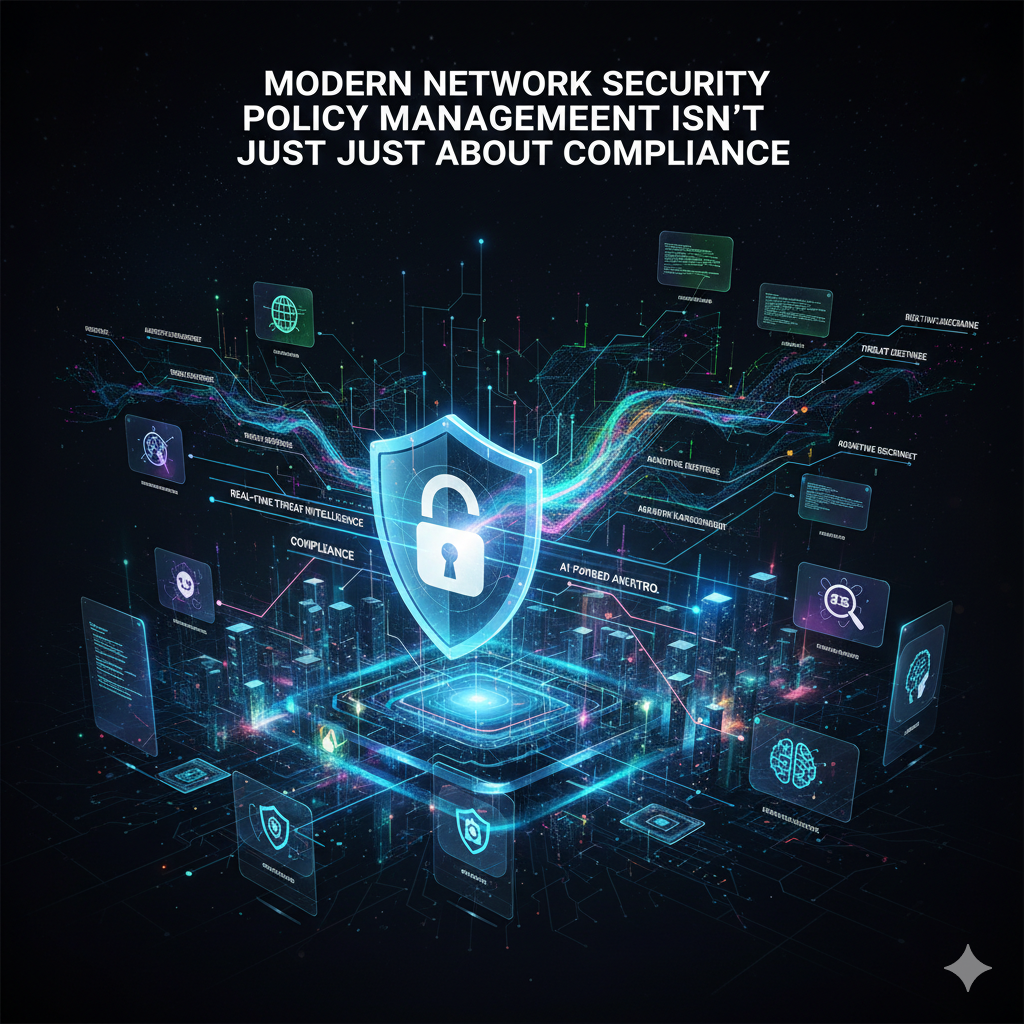In today’s hyper-connected digital world, most organizations rely on multiple IT vendors to power their operations — from firewalls and routers to cloud platforms and endpoint protection tools. While this multi-vendor approach brings flexibility, innovation, and cost-efficiency, it also introduces serious security challenges. Managing so many different systems, each with its own configurations and rules, can quickly become overwhelming and risky.
In this blog, you will explore why intelligent network security management has become a necessity — not an option — especially for businesses operating in complex, multi-vendor IT environments. Further, you will also learn how centralized visibility, automation, and smarter policy control can transform the way your organization handles firewall policy management, network security policy management, and network security audits to ensure robust protection and compliance.
The Challenges of Multi-Vendor Complexity
Every IT vendor brings its own interfaces, configurations, and rule sets. In theory, this diversity allows organizations to choose the “best tool for the job.” But in reality, it often leads to fragmented visibility, inconsistent policies, and security blind spots. Imagine managing multiple firewall policy management systems, each with different rule languages, logging formats, and compliance requirements. Without unified oversight, misconfigurations and redundant policies can slip through, exposing the organization to unnecessary risks.
Intelligent network security management solutions bridge these gaps by centralizing control — allowing security teams to monitor, analyze, and enforce consistent policies across all platforms from a single pane of glass.
Why Centralized Policy Management Is Crucial
When multiple vendors are involved, maintaining uniform security policies becomes nearly impossible without automation. Each firewall or network device might have its own set of access controls, leading to inconsistent enforcement and potential vulnerabilities. Network security policy management tools standardize these policies across all systems, ensuring that every rule — whether for access, segmentation, or compliance — aligns with corporate security standards.
With centralized visibility, organizations can:
- Identify and remove redundant or conflicting rules.
- Enforce consistent access controls across vendors.
- Accelerate audits and compliance checks.
By replacing manual oversight with intelligent automation, businesses can reduce operational overhead and minimize the chances of human error — a leading cause of network breaches.
Streamlining Firewall Policy Management
Firewalls remain the cornerstone of enterprise defense. But in a multi-vendor setup, each firewall behaves differently, making manual configuration an uphill battle. Through advanced firewall policy management, intelligent systems help streamline the entire lifecycle — from policy creation and testing to deployment and decommissioning.
- Automatically detect shadowed, expired, or overly permissive rules.
- Provide real-time alerts for configuration conflicts.
- Offer actionable insights to optimize firewall performance and compliance.
The result? Cleaner policies, stronger protection, and faster response times.
The Importance of Continuous Network Security Audits
In dynamic IT ecosystems, changes happen daily — new users, new applications, and new risks. Without regular auditing, even well-designed policies can become outdated or non-compliant. A network security audit serves as a health check for your entire infrastructure. It helps uncover gaps in configurations, identify unused rules, and ensure that all systems comply with regulatory requirements such as ISO 27001, GDPR, or PCI-DSS.
When paired with intelligent automation, audits become continuous rather than periodic — providing real-time insights and enabling teams to address vulnerabilities before they’re exploited.
Automation: The Future of Network Security Management
Automation is the game-changer that modern IT teams cannot afford to ignore. Intelligent automation ensures consistency, speed, and accuracy in complex environments. With automated network security management, teams can:
- Push updates and rule changes across multiple vendor systems simultaneously.
- Instantly validate changes against security policies.
- Gain end-to-end visibility across hybrid and cloud networks.
Instead of spending hours manually managing configurations, teams can focus on strategic initiatives — improving efficiency and strengthening the overall security posture.
Building a Unified Security Strategy
Intelligent network security policy management is not just about technology — it is also about strategy. It aligns IT operations, compliance, and business goals under a single, cohesive framework. By unifying disparate systems, organizations gain:
- Clear visibility into their entire security landscape.
- Consistent enforcement of policies across all devices.
- Faster detection and mitigation of risks.
In a world where every minute counts, intelligent management turns complexity into clarity.
Simplify the Complex with Opinnate
As multi-vendor environments grow, so does the need for smart, unified security management. Manual processes and disconnected systems can no longer keep up with today’s cyber threats. At Opinnate, we empower businesses with intelligent network security management solutions that simplify firewall policy management, automate network security audits, and unify network security policy management across diverse infrastructures.
Our platform delivers real-time visibility, automation, and compliance — helping you take control of complexity with confidence. Simplify your multi-vendor network with Opinnate — where intelligence meets security, and visibility meets peace of mind.





